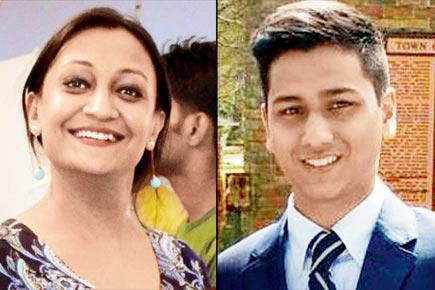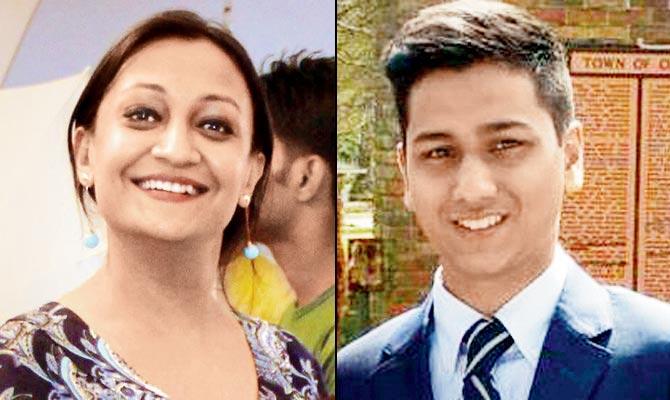Jihadist terror will eventually be defeated by Muslims like Akhond and Hossain, who stood up to the Dhaka militants in their final moments

 Joseph Conrad dug deep in trying to understand moral courage and in Lord Jim, his great novel, he seemed to suggest that the difference between heroism and cowardice was often paper-thin. In a different milieu, Ernest Hemingway described heroism as “grace under pressure.” For both writers, what made the difference was the display of character by the protagonist when confronted with death. Conrad and Hemingway dealt with fiction, but in Dhaka on Saturday, two human beings, Ishrat Akhond and Faraz Hossain, showed that reality is often far more powerful than fiction.
Joseph Conrad dug deep in trying to understand moral courage and in Lord Jim, his great novel, he seemed to suggest that the difference between heroism and cowardice was often paper-thin. In a different milieu, Ernest Hemingway described heroism as “grace under pressure.” For both writers, what made the difference was the display of character by the protagonist when confronted with death. Conrad and Hemingway dealt with fiction, but in Dhaka on Saturday, two human beings, Ishrat Akhond and Faraz Hossain, showed that reality is often far more powerful than fiction.
ADVERTISEMENT

During the Dhaka attack, Ishrat Akhond and Faraz Hossain were given a chance to escape if they could prove they were Muslims, but they rebuffed the terrorists and lost their lives in the process
Possibly there were other acts of heroism in the terrible hours in which 20 persons were held hostage and then systematically tortured and executed by 6 terrorists in Dhaka. But the world has come to learn of the story of Akhond and Hossain.
We will never know what would have gone through their minds when they were confronted by the choices put before them by the terrorists — there must have been fear, hesitation and confusion. But we do know that when the time came to choose, they made an unambiguous decision. It would have been understandable, and indeed even human, to have decided otherwise. But then, that is exactly the difference between heroes and ordinary folk.
Strangely, it is their killers who saw themselves as heroes — ghazis or mujahideen — holy warriors. Dressed as faux Arabs and armed with weapons, they appear to be both despicable and delusional. Where was the heroism in slaughtering defenceless men and women after taking them hostage?
The larger lesson of the heroism of Akhond and Hossain is the rebuff to those who would seek to use the instrument of death to compel people to accept their twisted version of their religion. This is not something unique to Islamists — in the 1980s, it was not unusual for Khalistani terrorists to separate Hindus and Sikhs before executing the former. The Khalistani movement collapsed, as much because of the police and army action, as by the rejection of their tactics by the Sikhs themselves. Likewise, the battle against Islamism and jihadist violence will have to eventually be fought in the minds of the Muslim communities across the world.
Terrorism is, at the end of the day, a mind game. By itself, it cannot offer an existential threat to society, but by shocking acts of violence it seeks to overawe and frighten people to acquiescence. Most people are not heroes and they are more likely to quietly submit before the threat However, in their own way, people do resist.
This is where the role of the state comes in.
In the coming months and years, the challenge before the Bangladeshi state is to get its act together. Individuals will play a major role in the process. But the state needs to effectively marshal its own instrumentalities and resources to tackle terrorism. Unfortunately, prolonged political strife in the country has weakened its governmental fabric. In such circumstances, the campaign of assassinations of secular writers, poets, bloggers, the attacks on Hindu priests and temples accompanied by spectacular terrorist acts are aimed at creating anarchy and chaos in which the perpetrators believe they can advance their agenda. For the Islamists, the agenda is about an Islamic state or a Caliphate. But operating within their ambit are also other forces being directed by Pakistan’s ISI.
In the days of erstwhile East Pakistan, the ISI used the territory to support an assortment of Mizo, Naga and Assamese separatists. Beginning in the 1990s, support was extended to groups like the Harkat-ul-jihad Islami and the Lashkar-e-Tayyeba to perpetrate acts of violence in India. Old links with the Jamaat-e-Islami have been useful here, especially since many of the leaders of the outfit have more than once advocated the reunification of Bangladesh with Pakistan. The Bangladesh Nationalist Party, headed by Begum Khaleda Zia, has cynically allied itself to the Islamists to take on the Awami League and this is a major factor in destabilising Bangladeshi society.
Stabilising Bangladesh requires the efforts of not just the people of the country and its government, but also its neighbours like India and the international community. India’s role is important not only because the country is ‘India-locked’ in terms of its land boundary, but given the nature of that boundary, people, goods and ideas flow back and forth easily, notwithstanding efforts to restrict their movement.
The battle is complex because terrorism is just a technique. What is important is the need to combat and defeat the ideas that motivate the terrorist. Individuals matter, but despite their heroism, they can be overwhelmed. What is needed is the collective will of the people to defeat those who seek to use violence to further their political and ideological ends.
The writer is a Distinguished Fellow, Observer Research Foundation, New Delhi
 Subscribe today by clicking the link and stay updated with the latest news!" Click here!
Subscribe today by clicking the link and stay updated with the latest news!" Click here!






